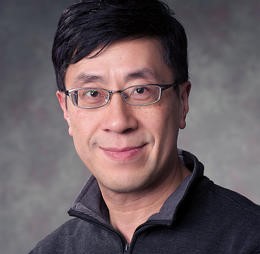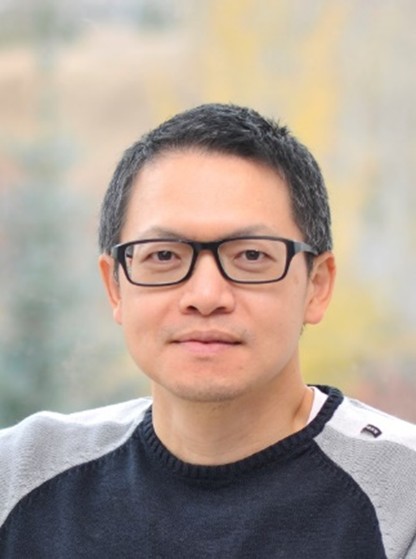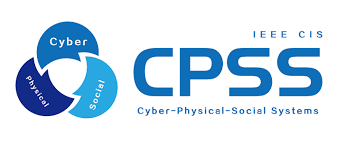5G-Enabled Unmanned Aerial Vehicles (UAV) and Machine Learning for IoT/UAV networks
Important Dates
Paper Submission Deadline
June 15, 2025
Authors Notification
June 30, 2025
Camera-Ready Submission
July 15, 2025
Organizers
Chair
Dr. Henry Leung
University of Calgary, Calgary, Canada
leungh@ucalgary.ca
Co-Organizer
Dr. Nan Xie
University of Calgary, Calgary, Canada
nan.xie@ucalgary.ca
Join us for the Special Session on 5G-Enabled Unmanned Aerial Vehicles (UAV) and Machine Learning for IoT/UAV networks
Keywords: 5G communications, edge processing, unmanned aerial vehicles, machine learning, situation awareness, trustworthy AI
The rapid advancement and commercialization of 5G technologies is
unlocking new possibilities—and posing new challenges—for leveraging
5G and emerging technologies such as artificial intelligence and
machine learning (AI/ML). For defence, security, and smart city
applications, the ability to achieve high situational awareness and
respond quickly to dynamic threats is essential. Integrating novel
sensing and processing techniques on UAVs and edge devices, paired
with the low latency and high reliability of 5G, offers promising
solutions to meet these critical needs. Modernizing data analytics
systems with edge computing, software-defined networking (SDN), and
intelligent resource allocation is also accelerating the development
of innovative applications across today’s IoT/sensing landscape.
This special session brings together researchers and practitioners
to explore the latest advances at the intersection of 5G, AI/ML,
IoT, and UAV systems (5G-ML-IoT-UAV).
Recommended Topics
Topics to be discussed in this special session include (but are not limited to) the following:
-
IoT/UAV and Machine Learning
- 3D SLAM, real-time map-building, UAV localization
- Autonomous UAV/IoT processing – detect, track, recognition using UAV’s or IoT sensors
- AI for edge computing –compression, optimization and operation
- Federated learning and efficient protocols for edge-to-server/cloud, offloading
- Sensor fusion with ground and aerial sensors, explainable AI for IoT
-
5G Communications
- 5G Transceiver designs and beamforming
- Network resource management and network slicing
- Machine learning for enhanced 5G/data processing
- UAV-assisted communication (air-to-ground, air-to-air)
-
Applications
- Research on developments of IoT platforms, UAV processing platforms
- Applications such as such as real-time surveillance in defense, and smart cities
Submission Guidelines
Full papers of up to 6 pages, following strictly the IEEE Computer Society Proceedings Manuscript style, using two-column, single-space format, with 10-point font size. Figures and references must be included in the page limit. Authors are allowed to pay for up to TWO (2) additional pages with over length charge. All accepted papers of IEEE SWC, after being presented onsite at the conference, will be included in the conference proceedings and submitted for inclusion in the IEEE Xplore Digital Library. At least one of the authors of each accepted paper must register early to attend the conference, in order for the paper to appear in the conference proceedings.
Organizers

Dr. Henry Leung
University of Calgary, Calgary, Canada
Biography
Henry Leung (Fellow, IEEE) received the Ph.D. degree in electrical and
computer engineering from McMaster University, Canada, in 1991. He was
previously with the Department of National Defense (DND), Ottawa, ON,
Canada, as a Defense Scientist. He is currently a professor in the
department of Electrical and Software Engineering at the University of
Calgary, Canada. His research interests include information fusion,
machine learning, the Internet of Things, nonlinear dynamics, robotics,
and signal and image processing., He is the Associate Editor of the IEEE
Circuits and Systems Magazine. He is the Topic Editor on “Robotic
Sensors” of the International Journal of Advanced Robotic Systems. He is
also an Editor of the Springer book series on “Information Fusion and
Data Science”. Dr. Leung is also a Fellow of SPIE, Fellow Canadian
Academy of Engineering, and Fellow of the Engineering Institute of
Canada.
Dr. Henry Leung has over 500 publications and 15 patents in his research
areas of information fusion, nonlinear processing, IoT/sensing, and
machine learning. Leung has held leadership roles in over (20)
conferences related to signal/image processing, sensor fusion, and
artificial intelligence. Examples: Track chair: IEEE ISCAS, 2010,
Nonlinear Circuits and Systems; IEEE International Conference on
Cognitive Informatics and Cognitive Computing, 2011 and organizing
committee of 10th (2007) and 15th International Conference on
Information Fusion, 2012. He has been in program committees of over 50
conferences.

Dr. Nan Xie
University of Calgary, Calgary, Canada
Biography
Nan Xie (Senior Member, IEEE) is an IT leader and senior engineer at The City of Calgary. He is also an adjunct professor in the Department of Electrical and Software Engineering, at the University of Calgary. He received his Ph.D degree in 2018 from the University of Calgary. His current research interest is in the areas of artificial intelligence, Internet of Things (IoT) and 5G for smart city applications. As the IT leader at the City of Calgary, Dr. Nan Xie has extensive experience in developing innovative IoT technologies with the City. Dr. Xie has received several industrial awards for his contributions in the field of industrial IoT and smart city. He was the recipient of the 2018 Minister's Award for Municipal Excellence for his work in the City LoRaWAN project and the 2019 Smart 50 Award.
IEEE SWC 2025 Colocated Conferences
IEEE ScalCom 2025
The 25th IEEE International Conference on Scalable Computing and Communications
ViewSponsors





